Parent Refuses To Make Their Ill 17-Year-Old Son Give Up His Seat For An Elderly Woman, Wonders If They Did The Right Thing
By admin / February 18, 2023 / No Comments / Uncategorized
Redditor throwawya293_ opened up about an unpleasant situation on the bus after she didn’t follow such norms. Her son wasn’t feeling well, so she sat him down on the last empty seat. When an elderly lady entered the bus, the mother couldn’t force her feeble son to give it up. Unsurprisingly, people were not happy about it and they let her know.
In order to better understand the situation, Bored Panda has discussed the role empathy plays in social interactions with Dr. Michelle Lobchuk, a professor at the Rady Faculty of Health Sciences, at the University of Manitoba.
Social norms can help create mutual respect and encourage polite communication, but they can also cause some unpleasant situations

Image credits: Jun Huang (not the actual photo)
This woman had to take the heat from passengers on a bus after her son didn’t give up his seat for an elderly person
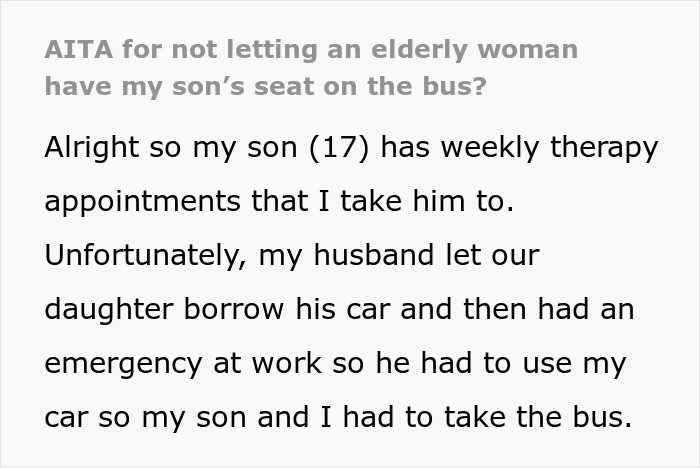



Image credits: Kiril Krsteski (not the actual photo)

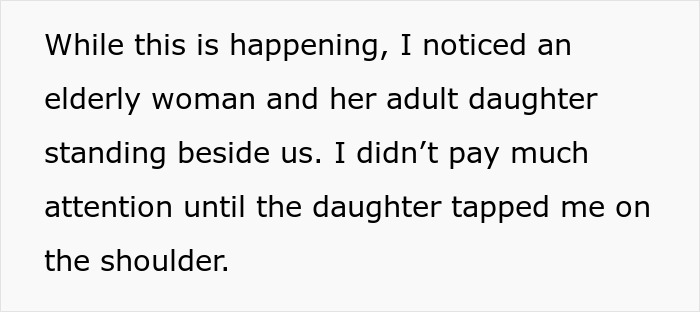
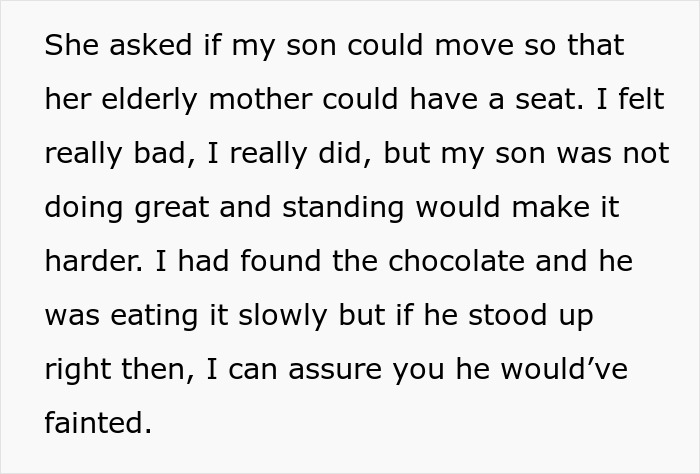


Image credits: rüveyda (not the actual photo)

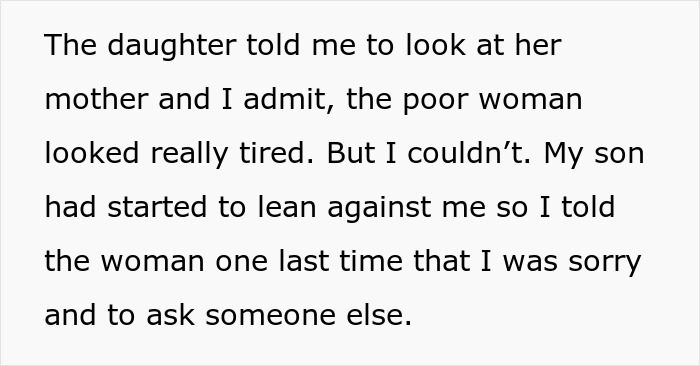



Prevailing social norms usually affect the way people interact with others
People on the bus expected the OP’s son to give up his seat for the elderly lady. Based on prevailing social norms, that’s the right thing to do. Such examples of common courtesy are often introduced to us as kids. Growing up, we might also start to hear the argument of being younger and stronger than some other members of our society. You have likely been in a situation yourself where you offered to help a weaker person because you could. And likely because there was a tiny voice in your head saying that you should.
Such gestures often come at the expense of your convenience. They might require suppressing feelings of selfishness. And that is likely one of the reasons people tend to judge those who refuse to conform to such social norms. The comments the OP had to listen to work as great proof of that. But in her case, she wasn’t being selfish for her own good. The woman had her kid’s best interests at heart, which is why she decided to take the heat from the people rather than force him to get out of his seat.
Image credits: MART PRODUCTION (not the actual photo)
It is important not to judge a book by its cover and try to empathize with people around you, even if you don’t know them
Even after she told the elderly lady and her daughter that her son wasn’t feeling well, they didn’t seem to empathize with the young man. They said that they saw him standing before, but, as the saying goes, you shouldn’t judge a book by its cover. Sometimes people might be going through difficulties, making social norms the last thing on their minds.
You might not know that something’s wrong, but in cases you do (as the two women did), it’s important to imagine walking a mile in their shoes. Being able to empathize with others starts with looking at yourself first.
Dr. Michelle Lobchuk expanded on this thought in an interview with Bored Panda: “To achieve an empathic connection with strangers, a person needs to always start with understanding oneself. We have to take care that we do not judge strangers by our biases, stereotypes or prejudices—this is why self-reflection is key to taking an empathic stance with others.”
“Knowing oneself first helps us to see others better by controlling our own reactions from influencing our understanding of others. Empathy helps us to focus on seeing and hearing others and not our inner self during the encounter,” she added.
Image credits: Kindel media (not the actual photo)
Our ability to be empathetic depends on numerous factors and requires conscious effort
Our ability to empathize with others depends on numerous factors. Dr. Michelle Lobchuk distinguished four main ones that include our a) past experiences (our experiences in similar situations or with others), b) prejudice (preconceived opinions not based on reason or actual experience), c) feelings (stress, fatigue, fear can result in less energy or motivation to engage in empathy), and d) environment (for example, time, tasks, information overload, masks/technology, less in-person communication, family dynamics). “These factors can distract or inhibit our ability or motivation to engage in the empathic stance,” she said.
Sometimes, even if you feel for others, you might have to prioritize things and choose the lesser of the two evils. The OP cared more for the well-being of her son and didn’t receive much compassion for it. And even though she herself tried empathizing with the other side—she saw how tired the elderly lady looked and felt bad—she couldn’t force herself to follow the social norms at the expense of her son. That shows that these norms can be a morally confusing question.
“Empathy is intentional and requires conscious effort. It starts with self-reflection that helps us to ‘own’ our thoughts and reactions that can influence our connections with others. The conscious empathic stance helps others to see that we are at least ‘trying’ to understand their viewpoints without judgment but from a place of ‘curiosity’,” Dr. Michelle Lobchuk said.
Following social norms usually means treating others with respect. But that is a two-way street, and both sides should always try to consider each other’s feelings.
People in the comments felt bad for the woman, most of them agreed she wasn’t the jerk
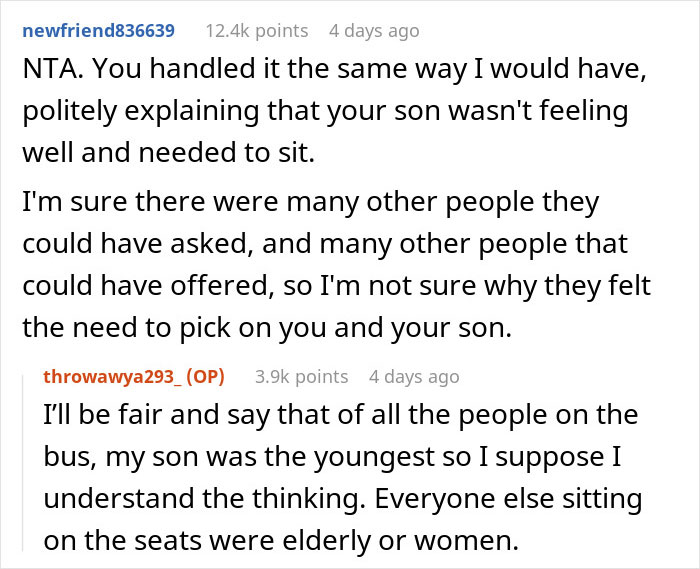

Read More https://www.boredpanda.com/mom-doesnt-let-elderly-woman-take-sons-seat/


